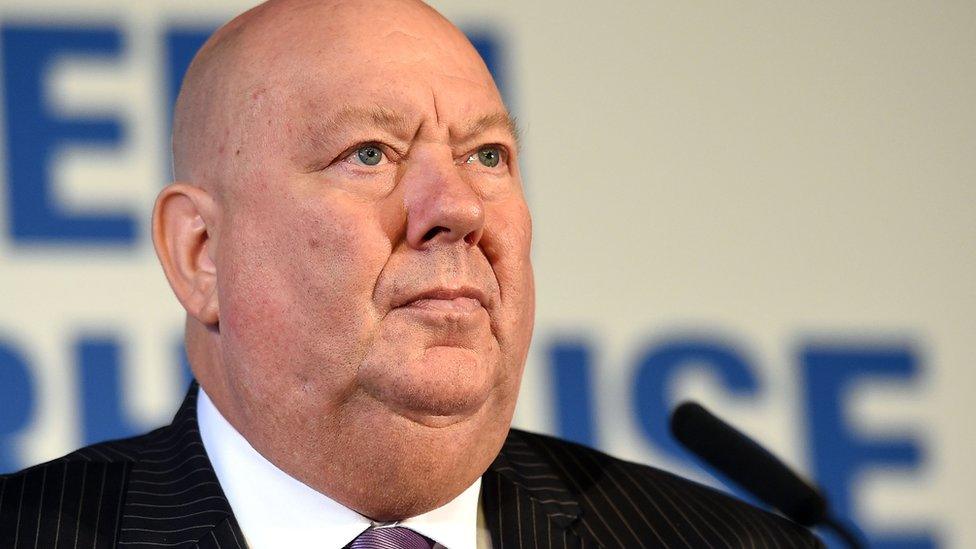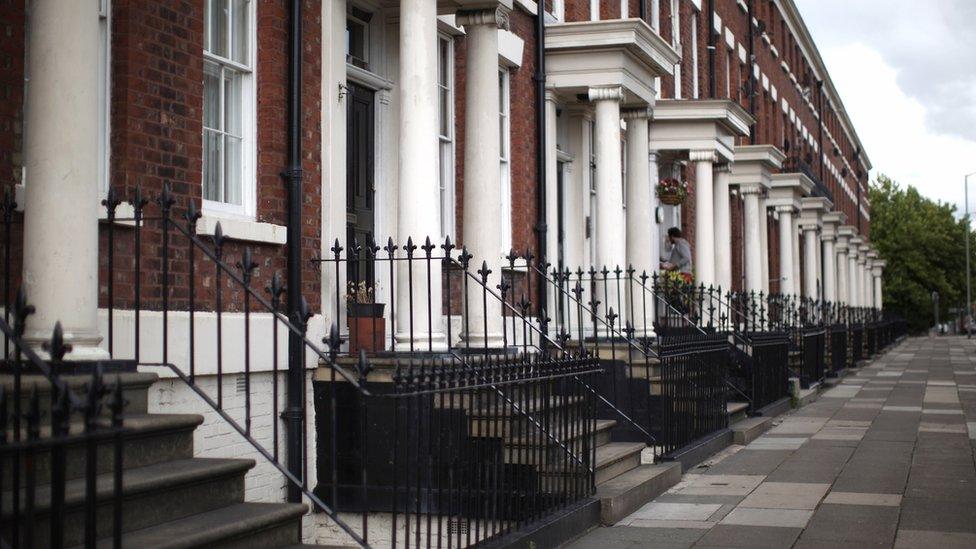Liverpool budget: Mayor's £90m in savings 'will mean job losses'
- Published

The mayor said the cuts will mean it takes people "longer to get a response to requests for some services"
Liverpool's mayor has proposed a budget cut of £90m over the next three years, which could see about 300 jobs lost.
Joe Anderson's plans, external include reducing call centre opening hours, reviewing libraries and increasing the number of "in-house" foster carers.
He also suggests opening car parks longer and introducing a premium service for bulky item collections to raise funds.
The proposals will be discussed by the city council's cabinet on 24 February.
Mr Anderson said reducing council call centre hours could save £2.9m and cutting the number of One Stop Shops - where people can get advice on council services or pay their council tax - could draw back £2.7m.
'No choice'
However, he said that would mean it will "take people longer to get a response to requests for some services".
His plan sets out a saving of £4.1m in children's services, which would be achieved by reducing the cost of care placements and packages by using fewer independent foster agencies.
It also includes reducing the cost of the city's economic development agency, Liverpool Vision, by £1.2m and reviewing of the city's library provision to save £1.6m - a move which could see several close.
The budget also proposes a 4.99% council tax increase - the mayor previously suggested a one-off rise of 10% but that was rejected by Liverpool residents during a public consultation.
Mr Anderson said the cuts would mean job losses, stating that there was "no doubt that some frontline council services will be significantly reduced and we will have less staff by 2020".
"These are not things that we want to do, but we have no choice, because the government isn't listening," he said.

Analysis: Claire Hamilton - Political Reporter, BBC Radio Merseyside
Joe Anderson's set out his budget, which would save £90m.
Big cuts to adult social care have been minimised - for the moment at least - and the impact of paying the national living wage has turned out to be less costly than was originally budgeted for. The city has also made money through the mayor's flagship Invest To Earn programme, which is generating £3m a year.
New homes are generating an additional £8m per year in council tax revenue - an amount that could rise with the building of executive homes in south Liverpool, as the vast majority of the city's housing stock is currently in the lowest bands.
Mr Anderson says he's setting up a task force to consider the future of the city's libraries - he expects about four will have to close in order to make the savings - and there is also doubt over the future of the One Stop Shops.
But there are also areas where the council is seeking to invest, including in street cleaning, where £2m will be spent, and £1.5m has also been allocated to improve leisure facilities.

- Published10 November 2016
